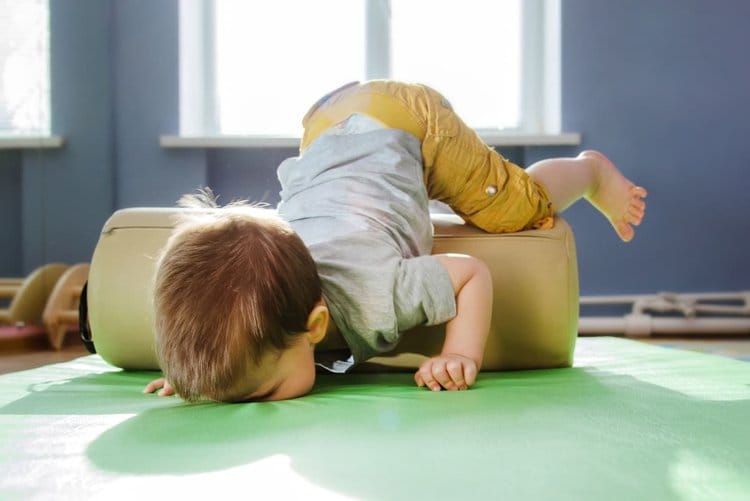
As we get older, it’s normal to feel changes in balance, strength, and energy. But these changes don’t have to slow us down. By understanding what increases the risk of falls – and taking a few smart steps – we can stay active, steady, and independent.
What Is Frailty?
Frailty isn’t just about age. It’s a medical condition that affects how the body copes with stress – like illness, injury, or even a sudden movement. Common signs include feeling tired more easily, muscle weakness, slower walking speed, weight loss, and less physical activity. When we’re frailer, we’re more vulnerable. But the good news? Frailty isn’t fixed. It can be managed – and even improved.
Why Falls Matter
A single fall can have a big impact — from broken bones to reduced confidence. Many people move less after a fall, which leads to weaker muscles, less balance, and a greater chance of falling again. It’s a cycle we want to break early.
What Increases the Risk of Falling?
Falls often happen because of a mix of things – not just one cause. As we age, our reflexes slow and muscles weaken. Vision and hearing may decline. Certain health conditions – like diabetes, arthritis, stroke, or Parkinson’s – can affect how we move or sense our surroundings. Some medications can also cause dizziness or drowsiness, especially when starting something new or taking more than one at a time. Cardiovascular issues — like low blood pressure, irregular heart rhythms, or dehydration — are common causes too, often overlooked. Even our joints play a part: osteoarthritis can affect the body’s ability to sense joint position, making balance harder. And of course, our environment matters – things like loose rugs, poor lighting, or uneven surfaces can turn small risks into big ones.
The Heart-Fall Connection
Not all falls are caused by trips or slips. Sometimes, the cause is inside — specifically, the heart.
Common cardiovascular causes include:
✔ A drop in blood pressure when standing (postural hypotension)
✔ Irregular heart rhythms (like AF or heart block)
✔ Over-sensitive blood pressure sensors (carotid sinus syndrome)
✔ Heart failure
✔ Dehydration or poor circulation
These can lead to dizziness, fainting, or sudden blackouts — and often, an unexplained fall.
How to Reduce Cardiovascular Risk
Start by checking your blood pressure regularly – especially sitting and standing. A sudden drop when you stand could mean postural hypotension. Ask your doctor if your medications might be playing a part. If you’ve ever felt dizzy, faint, or had a fall without knowing why, it might be time for a heart check. Simple tests – like an ECG or a monitor to track your heart rhythm – can uncover hidden issues. Stay hydrated. Take your time when standing up. And if you’re unsure about your symptoms, don’t ignore them – early checks can make all the difference. At OneMedicine, we offer personalised heart and blood pressure assessments to help you stay steady and confident.
Why Osteoarthritis Affects Balance
When joints become arthritic, it’s not just movement that’s affected – it’s also awareness. Inside every joint are sensors that tell the brain where your limbs are. Arthritis can reduce the sensitivity of these sensors, making it harder to stay balanced. That’s why people with osteoarthritis may feel unsteady, even without pain. Add stiffness or weakness, and the risk of falls goes up. Regular exercise and tailored physiotherapy can help retrain the body and restore confidence in movement.
What Helps Prevent Falls?
Keep Moving
The best way to prevent falls? Move more.
✔ Strength training keeps muscles working
✔ Balance exercises improve stability
✔ Walking, swimming, or tai chi build endurance and confidence
Aim for a few sessions each week. Even small movements count — the key is to keep going.
Why Swimming Works So Well
Swimming is ideal if you have stiff joints or struggle with weight-bearing exercise. The water supports your body, making it easier to move freely. It’s great for strength, balance, coordination, and confidence. It’s gentle on the joints — and surprisingly good for your heart. Many people feel lighter, looser, and more in control after just a few sessions. Look for pool classes designed for older adults, or simply start with a few easy lengths. And if you’re not sure what’s right for you, ask your GP or physio first.
Check Your Medications
Some medications – like sleeping tablets, blood pressure pills, or certain antidepressants – can increase fall risk. Ask your GP or pharmacist to review them regularly. Don’t stop taking anything suddenly, but do ask if a lower dose or alternative might help.
Support Bone Health
If a fall does happen, strong bones can help protect you. Make sure you’re getting enough calcium and vitamin D. Consider a supplement if needed. If you’re over 65 or have risk factors, ask about a bone density scan.
Assess the Home Environment
Most falls happen at home – but often, a few simple changes are all it takes to make your space safer. Start by clearing clutter, especially from walkways. Remove loose rugs, tuck away trailing cables, and make sure rooms are well-lit, especially at night. Add grab rails where they help most – like beside the toilet or in the shower. Non-slip mats in the bathroom and kitchen can make a big difference. Store everyday items within easy reach so you don’t need to stretch or climb. Even small adjustments, like contrasting colours on stairs, can help with depth perception. If you’re unsure where to begin, a home safety assessment with a physio or occupational therapist can offer peace of mind – and practical advice.
Know Your Numbers
Health checks help spot issues before they cause problems.
✔ Blood pressure
✔ Heart rhythm
✔ Blood sugar
✔ Medications
These quick tests can highlight risks you can act on — before a fall happens.
Final Thoughts
Falls are common, but they’re not inevitable. With the right plan, the right support, and a few smart changes, you can stay strong, mobile, and independent. At OneMedicine, we make it easy to take control — whether you’re managing frailty, checking your heart, or just looking to stay one step ahead.
Ready to move with confidence? We’re here to help.
















